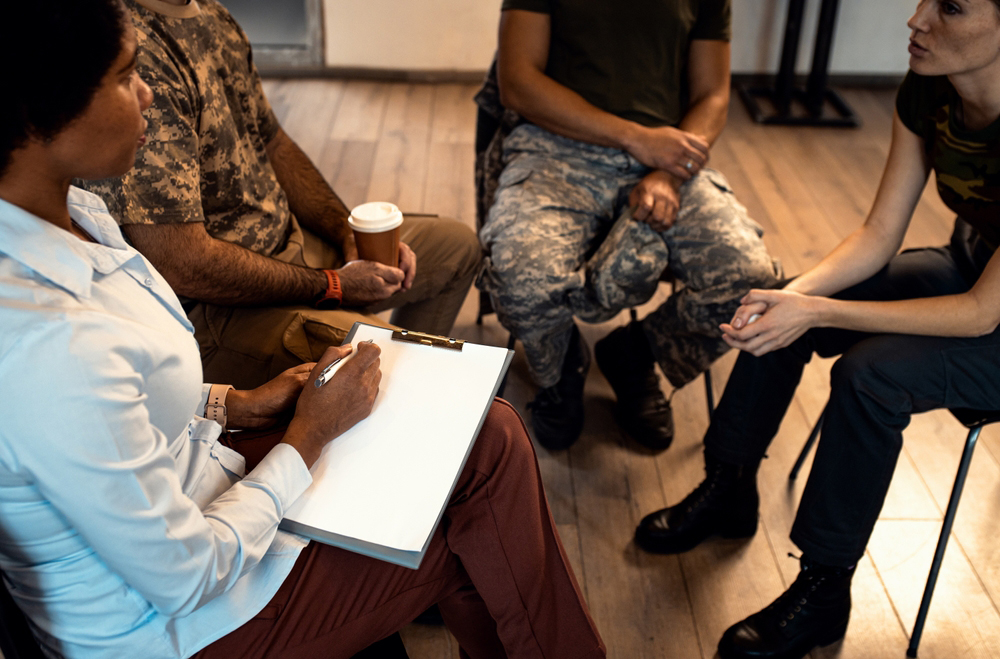Veterans pay a steep price for serving our country, including experiences like serving in combat and witnessing severe injury and death. As a result, a high percentage of U.S. military veterans struggle with PTSD – a mental health disorder characterized by intrusive thoughts, avoidance, anxiety and extreme negativity.
By giving you a judgment-free space to understand and process your experiences, trauma-focused therapy can help you develop coping strategies to move past PTSD’s debilitating effects. We’ve published this guide to effective trauma treatment to teach you more.
The Effects of Untreated Trauma
Leaving trauma unaddressed can cause its symptoms to manifest in every area of your life, affecting your relationships, physical well-being and ability to enjoy activities you used to love.
Though drugs and alcohol can cause short-lived relief from trauma symptoms, self-medicating with these substances can gradually cause a chemical dependency. When addiction co-occurs with untreated trauma, health professionals call it a dual diagnosis. Simultaneously addressing all facets of your mental, behavioral and emotional health is essential for processing trauma and finding your path to recovery.
How to Work Through Trauma
While escaping people, places and situations that trigger memories of the trauma is a hallmark of PTSD, attempts to suppress and ignore your experiences will not help you get better. A tenet of trauma-focused therapy is accepting and acknowledging what you have been through so you can begin rebuilding your sense of self. You may feel more empowered by embracing the knowledge that you are not alone.
Surviving trauma can fundamentally change your worldview and self-image. Your experience may have shattered your sense of safety, causing you to feel differently about yourself. After what you’ve been through, you could also have trouble relating to or trusting others. A trauma-focused therapist can help you learn emotional resilience, restore your trust, find a purpose and encourage you to move forward with a new normal.
Trauma manifests in various mental health symptoms – including depression, anxiety, dissociation, shame, guilt and terrifying flashbacks and nightmares. While working consistently with a qualified counselor or therapist, you can experience a decrease in the intensity or frequency of these symptoms over time.
Types of Trauma-Focused Therapy
Several different approaches have proven beneficial at treating mental, behavioral and emotional issues like trauma and PTSD, including dialectical behavioral therapy, cognitive processing therapy, eye movement desensitization and reprocessing and cognitive behavioral therapy.
The method you respond best to may depend on what you’ve been through, how trauma has affected your daily thoughts and activities and your therapist’s training. A highly tailored approach can give you the best chance of recovering and living your life to the fullest.
Customized Treatment Plans for Veterans and Their Families
At Hope by the Sea, we specialize in providing trauma-focused treatment for veterans and military families who need extra support. Our dual-diagnosis programming focuses on the unique needs of people living with co-occurring mental health disorders and addiction issues. As a proud member of the VA’s Community Care Network, we are well-equipped to address the unique challenges faced by people who have served our country. We also accept TriWest and TRICARE.
We provide same-day shuttle service to our family-owned California rehab facility for clients who need immediate treatment. Contact our knowledgeable admissions staff to confirm your VA Community Care eligibility or verify your insurance coverage.

